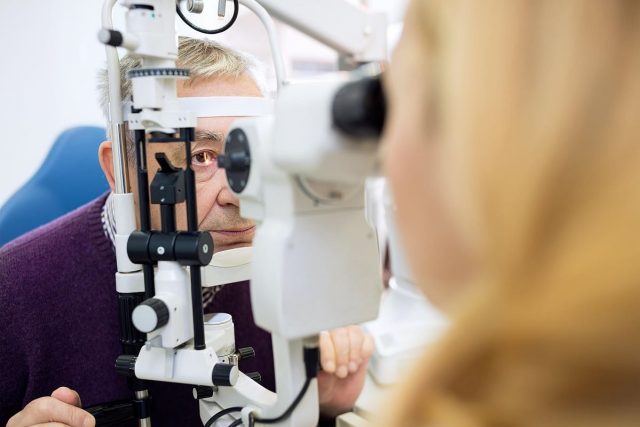96 and 95 percent of participants were mostly or completely satisfied with distance, overall vision
By Elana Gotkine HealthDay Reporter
MONDAY, Sept. 22, 2025 (HealthDay News) — Patients implanted with the TECNIS PureSee extended depth of focus (EDF) presbyopia-correcting intraocular lens (PCIOL) have excellent or good vision, according to a study presented at the European Society of Cataract and Refractive Surgeons Congress, held from Sept. 12 to 16 in Copenhagen, Denmark.
Oliver Findl, M.D., from Hanusch Hospital in Vienna, and Diana Cheng, from Johnson & Johnson MedTech in Irvine, California, conducted a multicenter observational study involving patients bilaterally implanted with the TECNIS PureSee EDF PCIOL. Reports included postoperative manifest refraction spherical equivalent (MRSE), patient-reported outcomes, best-corrected distance visual acuity (BCDVA), distance-corrected intermediate VA (DCIVA), and distance-corrected near VA (DCNVA).
At the time of presentation, data were included for 238 patients. The researchers found that mean MRSE was 0.01 ± 0.39 D, while mean logMAR binocular BCDVA, DCIVA, and DCNVA were –0.05 ± 0.09, 0.11 ± 0.10, and 0.22 ± 0.16, respectively. A logMAR of 0.2 or better DCIVA was achieved by 92 percent of individuals binocularly, and 78 percent achieved 0.3 logMAR or better DCNVA. For distance, intermediate, near, and overall vision, a high percentage of patients reported not needing glasses or needing glasses a little of the time (96, 93, 62, and 85 percent, respectively), while 96, 94, 73, and 95 percent were mostly or completely satisfied with their distance, intermediate, near, and overall vision, respectively. Most (96 percent) would recommend the lens to their family and friends.
“The category of EDF IOLs, such as the TECNIS PureSee, are a great alternative to multifocal lenses for patients who wish to be less dependent on spectacles after lens surgery and do not want to take the risk of unwanted optical side effects,” Findl said in a statement.
The study was funded by Johnson & Johnson MedTech.
Copyright © 2025 HealthDay. All rights reserved.



















